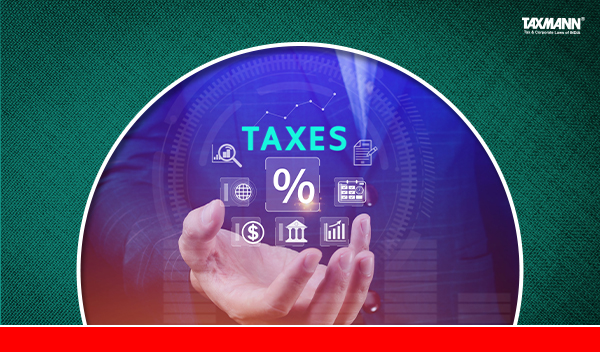Rate of Tax as per DTAA to be Applied While Making Additions on Sum Not Offered to Tax by Non-Resident | ITAT
- Blog|News|International Tax|
- 2 Min Read
- By Taxmann
- |
- Last Updated on 23 March, 2024

Case Details: Deputy Commissioner of Income-tax (IT) vs. Foundation Co. of Canada Ltd. - [2024] 160 taxmann.com 526 (Delhi-Trib.)
Judiciary and Counsel Details
-
- Saktijit Dey, Vice-President & Dr B.R.R Kumar, Accountant Member
- Ms Ananya Kapoor & Vibhu Jain, Advs. for the Appellant.
- Vizay B. Vasanta for the Respondent.
Facts of the Case
Assessee was a non-resident corporate entity incorporated under the laws of Canada. It was engaged in the construction and infrastructure development business. It entered into a joint venture (JV) with an Indian entity to execute the hydroelectric project. The assessee received a certain amount of consideration as a technical know-how fee and towards a financial commitment fee from the JV. It did not file any return of income.
Upon receiving the information that the assessee had received payments but had not filed an income tax return in India, the Assessing Officer (AO) reopened the assessment under section 147 and made additions to the assessee’s income.
The assessee submitted that JV had withheld tax on the technical know-how fee and financial commitment fee payments at 10 per cent and 15 per cent, respectively, following an order passed by the TDS Officer under section 195.
On appeal, the CIT(A), after considering the assessee’s submissions, allowed the assessee’s claim to be taxed as per the rate provided under India-Canada DTAA. Aggrieved by the order, an appeal was filed before the Delhi Tribunal.
ITAT Held
The Tribunal held that it was an undisputed fact that the assessee received certain amount of consideration as technical know-how fee and towards financial commitment fee from the JV. It was apparent that the JV had approached the TDS Officer under section 195 seeking direction regarding the rate of TDS on the payments mentioned above. In response to the application filed by the JV, the TDS officer issued an order under section 195, wherein the JV was directed to deduct tax at 10 per cent on technical know-how fees and at the rate of 15 per cent on financial commitment fees.
The TDS Officer applied the rates, treating the technical know-how fee as FTS and the financial commitment fee as interest income. The rate of TDS was determined in terms of the tax rate for FTS and interest income as per the treaty provisions. However, the AO taxed all the receipts by applying the normal tax rate as per domestic law’s provisions.
There was no dispute that the assessee willingly offered all the receipts to tax in India. The dispute was only about the applicable rate of tax on such receipts. Since the assessee was a resident of Canada and was entitled to get benefits under the India-Canada DTAA, the assessee must get the benefit of the tax rate provided under the DTAA. Being conscious of this factual position, the TDS Officer had issued an order under section 195 directing the payer to deduct tax at 10 per cent and 15 per cent, respectively.
Accordingly, the CIT(A) ‘s order was upheld, and the AO’s appeal was disallowed.
Disclaimer: The content/information published on the website is only for general information of the user and shall not be construed as legal advice. While the Taxmann has exercised reasonable efforts to ensure the veracity of information/content published, Taxmann shall be under no liability in any manner whatsoever for incorrect information, if any.

Taxmann Publications has a dedicated in-house Research & Editorial Team. This team consists of a team of Chartered Accountants, Company Secretaries, and Lawyers. This team works under the guidance and supervision of editor-in-chief Mr Rakesh Bhargava.
The Research and Editorial Team is responsible for developing reliable and accurate content for the readers. The team follows the six-sigma approach to achieve the benchmark of zero error in its publications and research platforms. The team ensures that the following publication guidelines are thoroughly followed while developing the content:
- The statutory material is obtained only from the authorized and reliable sources
- All the latest developments in the judicial and legislative fields are covered
- Prepare the analytical write-ups on current, controversial, and important issues to help the readers to understand the concept and its implications
- Every content published by Taxmann is complete, accurate and lucid
- All evidence-based statements are supported with proper reference to Section, Circular No., Notification No. or citations
- The golden rules of grammar, style and consistency are thoroughly followed
- Font and size that’s easy to read and remain consistent across all imprint and digital publications are applied



 CA | CS | CMA
CA | CS | CMA
